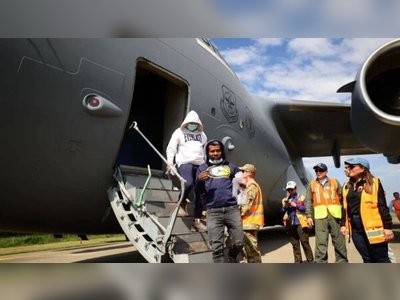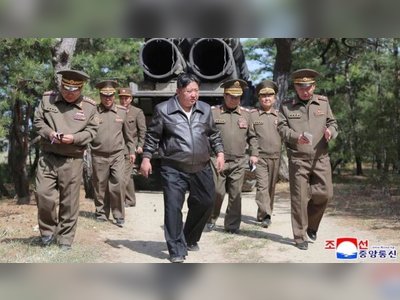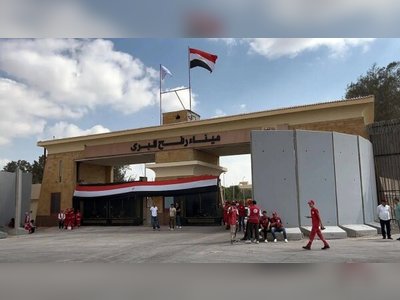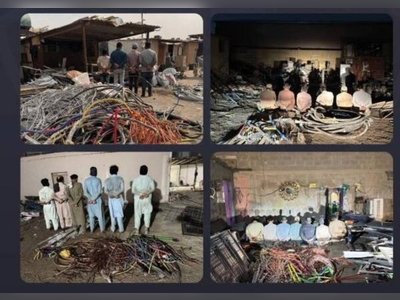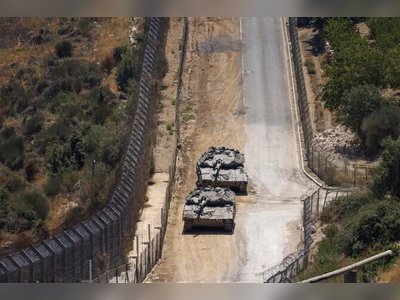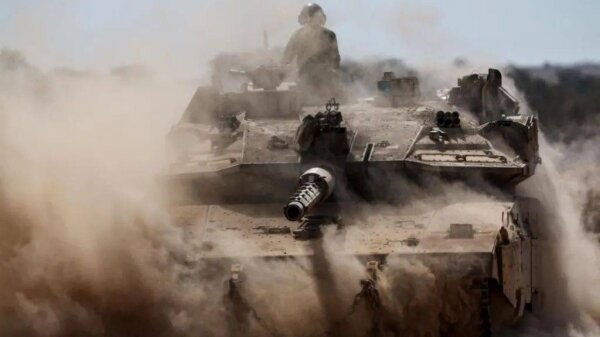
Israel Calls Up 60,000 Reservists Ahead of Planned Gaza City Offensive
The Israeli military prepares for a potential ground invasion in Gaza as regional mediators attempt to secure a ceasefire.
JERUSALEM — The Israeli military has announced the calling up of approximately 60,000 reservists in preparation for a planned ground operation aimed at capturing and occupying all of Gaza City.
According to military sources, these reservists are expected to report for duty in September, with most of the troops involved in the anticipated offensive comprising active-duty personnel.
The operation's preparations include ongoing activities by troops in areas such as Zeitoun and Jabalia.
This move comes after Defence Minister Israel Katz approved the plan on Tuesday, which is set to be presented to the security cabinet later this week.
Under the plan, hundreds of thousands of Palestinians in Gaza City are predicted to be instructed to evacuate towards shelters located in southern Gaza.
The Israeli government's decision follows the breakdown of indirect talks with Hamas over a ceasefire and hostage release agreement last month.
Regional mediators have proposed a new 60-day truce along with the release of approximately half of the 50 hostages currently held in Gaza, which Hamas has reportedly accepted.
However, Israel insists on negotiating a comprehensive deal that would result in all hostages being freed.
The Israeli Defence Forces (IDF) stated on Wednesday that the call-up orders for the reservists are part of preparations for 'the next phase of Operation Gideon's Chariots,' an operation initiated in May. Additionally, 20,000 reservists who were already called up will receive extended orders.
Senior commanders have approved the plan for a gradual and precise operation in and around Gaza City, with Chief of Staff Lt Gen Eyal Zamir expected to finalize the details in the coming days.
The operation is anticipated to involve five divisions.
Defence Minister Katz has indicated that once completed, this operation will significantly alter the landscape of Gaza, leading to changes in how it is administered and inhabited.
Prime Minister Benjamin Netanyahu emphasizes the military's objectives as securing the release of all hostages held by Hamas and achieving a decisive victory over the Palestinian armed group.
The IDF also announced on Wednesday that the Givati Brigade has resumed operations in Jabalia and near Gaza City, focusing on dismantling military infrastructures, eliminating terrorists, and consolidating control over the area.
Civilians are being advised to relocate to safer areas in southern Gaza to reduce potential harm.
According to sources from Hamas' Civil Defence agency, the situation in Zeitoun and Sabra neighborhoods remains dangerous due to continuous shelling.
The IDF's operations have resulted in the deaths of 21 people across Gaza on Wednesday.
A bombing incident in Shati refugee camp led to the death of three children and their parents, as reported by Palestinian news agency Wafa.
Numerous warnings have been issued by UN agencies and NGOs regarding the impending humanitarian crisis.
They express deep concern over the expected exacerbation of already dire conditions in Gaza due to the proposed Israeli military actions.
These organizations argue that compelling hundreds of thousands of residents to move south poses a severe risk, particularly given the overcrowded and ill-equipped conditions in southern areas designated for displaced individuals.
Hospitals in these regions are operating at significantly higher capacities than intended, which accepting patients from northern areas could critically endanger their lives.
The Israeli military's actions in Gaza follow Hamas' attack on southern Israel on October 7th, 2023, resulting in over 1,200 deaths and the capture of 251 hostages.
Since then, approximately 62,122 fatalities have been recorded in Gaza by the territory's health ministry.
With most of Gaza's population displaced multiple times and facing severe infrastructure damage and shortages, experts warn of an escalating humanitarian crisis, including a potential famine due to food scarcity.
According to military sources, these reservists are expected to report for duty in September, with most of the troops involved in the anticipated offensive comprising active-duty personnel.
The operation's preparations include ongoing activities by troops in areas such as Zeitoun and Jabalia.
This move comes after Defence Minister Israel Katz approved the plan on Tuesday, which is set to be presented to the security cabinet later this week.
Under the plan, hundreds of thousands of Palestinians in Gaza City are predicted to be instructed to evacuate towards shelters located in southern Gaza.
The Israeli government's decision follows the breakdown of indirect talks with Hamas over a ceasefire and hostage release agreement last month.
Regional mediators have proposed a new 60-day truce along with the release of approximately half of the 50 hostages currently held in Gaza, which Hamas has reportedly accepted.
However, Israel insists on negotiating a comprehensive deal that would result in all hostages being freed.
The Israeli Defence Forces (IDF) stated on Wednesday that the call-up orders for the reservists are part of preparations for 'the next phase of Operation Gideon's Chariots,' an operation initiated in May. Additionally, 20,000 reservists who were already called up will receive extended orders.
Senior commanders have approved the plan for a gradual and precise operation in and around Gaza City, with Chief of Staff Lt Gen Eyal Zamir expected to finalize the details in the coming days.
The operation is anticipated to involve five divisions.
Defence Minister Katz has indicated that once completed, this operation will significantly alter the landscape of Gaza, leading to changes in how it is administered and inhabited.
Prime Minister Benjamin Netanyahu emphasizes the military's objectives as securing the release of all hostages held by Hamas and achieving a decisive victory over the Palestinian armed group.
The IDF also announced on Wednesday that the Givati Brigade has resumed operations in Jabalia and near Gaza City, focusing on dismantling military infrastructures, eliminating terrorists, and consolidating control over the area.
Civilians are being advised to relocate to safer areas in southern Gaza to reduce potential harm.
According to sources from Hamas' Civil Defence agency, the situation in Zeitoun and Sabra neighborhoods remains dangerous due to continuous shelling.
The IDF's operations have resulted in the deaths of 21 people across Gaza on Wednesday.
A bombing incident in Shati refugee camp led to the death of three children and their parents, as reported by Palestinian news agency Wafa.
Numerous warnings have been issued by UN agencies and NGOs regarding the impending humanitarian crisis.
They express deep concern over the expected exacerbation of already dire conditions in Gaza due to the proposed Israeli military actions.
These organizations argue that compelling hundreds of thousands of residents to move south poses a severe risk, particularly given the overcrowded and ill-equipped conditions in southern areas designated for displaced individuals.
Hospitals in these regions are operating at significantly higher capacities than intended, which accepting patients from northern areas could critically endanger their lives.
The Israeli military's actions in Gaza follow Hamas' attack on southern Israel on October 7th, 2023, resulting in over 1,200 deaths and the capture of 251 hostages.
Since then, approximately 62,122 fatalities have been recorded in Gaza by the territory's health ministry.
With most of Gaza's population displaced multiple times and facing severe infrastructure damage and shortages, experts warn of an escalating humanitarian crisis, including a potential famine due to food scarcity.

